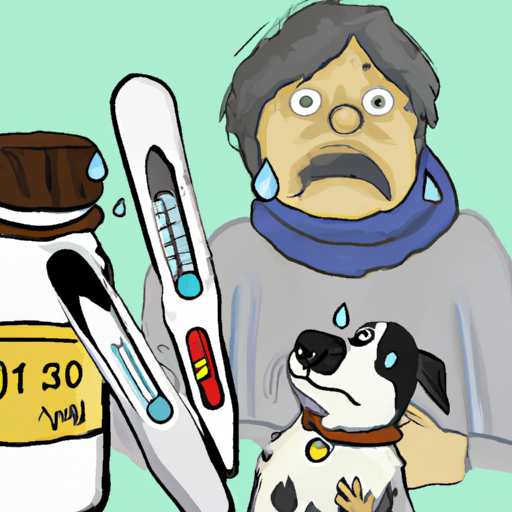Understanding Milk Fever
Milk fever, or eclampsia, is a serious condition that can affect nursing dogs. It is a sudden, life-threatening condition characterized by low blood calcium levels.
Typically, this happens when the mother dog is producing milk for her puppies but isn’t getting enough calcium in her diet or isn’t able to effectively metabolize the calcium she does get. It’s like a ship in a storm without a compass- she’s adrift with no direction, and the results can be catastrophic.
Recognizing Symptoms of Milk Fever
A dog with milk fever may exhibit the following symptoms:
- Restlessness
- Loss of coordination
- Heavy panting
- Rapid heart rate
- Fever
- Muscle tremors
If you notice any of these symptoms, it’s crucial to get your dog to the vet immediately. Time is of the essence here- think of it like a ticking clock. Every second counts.
Treatment and Prevention of Milk Fever
To treat milk fever, a vet will typically give the dog intravenous calcium supplements. This kind of treatment is akin to giving a wilting plant a glass of water: it immediately perks up and revives.
To prevent milk fever, make sure your dog has a balanced diet. This should include a dog food specifically designed for lactating dogs.
| Recommended Dog Food | Calcium Content |
|---|---|
| Hill’s Science Diet Puppy | 1.2% |
| Royal Canin Medium Puppy | 1.1% |
| Nutro Ultra Puppy Dry Dog Food | 1.2% |
Coping with a Milk Fever Diagnosis
As a caregiver, discovering that your dog has milk fever can be very stressful. Remember, though, knowledge is power. The more you understand about the condition, the better equipped you are to help your dog recover.
Remember, you are not alone. Reach out to online communities, local support groups, or your vet for advice and support. Like a lighthouse guiding a ship in a storm, these resources can help guide you through this difficult time.
The Importance of Regular Vet Checkups
Regular vet checkups can help catch milk fever before it becomes life-threatening. It’s like taking your car in for regular oil changes- preventative maintenance is key to keeping things running smoothly.
FAQs
Q: What breeds are prone to milk fever?
A: Milk fever can affect any breed, but it’s most common in small breeds with large litters.
Q: Can milk fever be cured?
A: With prompt treatment, most dogs recover completely from milk fever.
Q: How can I prevent milk fever?
A: Ensuring your dog has a balanced diet, especially during lactation, can help prevent milk fever.
Q: Can male dogs get milk fever?
A: No, milk fever only affects nursing females.
Q: Is milk fever contagious?
A: No, milk fever is not contagious. It’s a metabolic disorder related to calcium levels.



